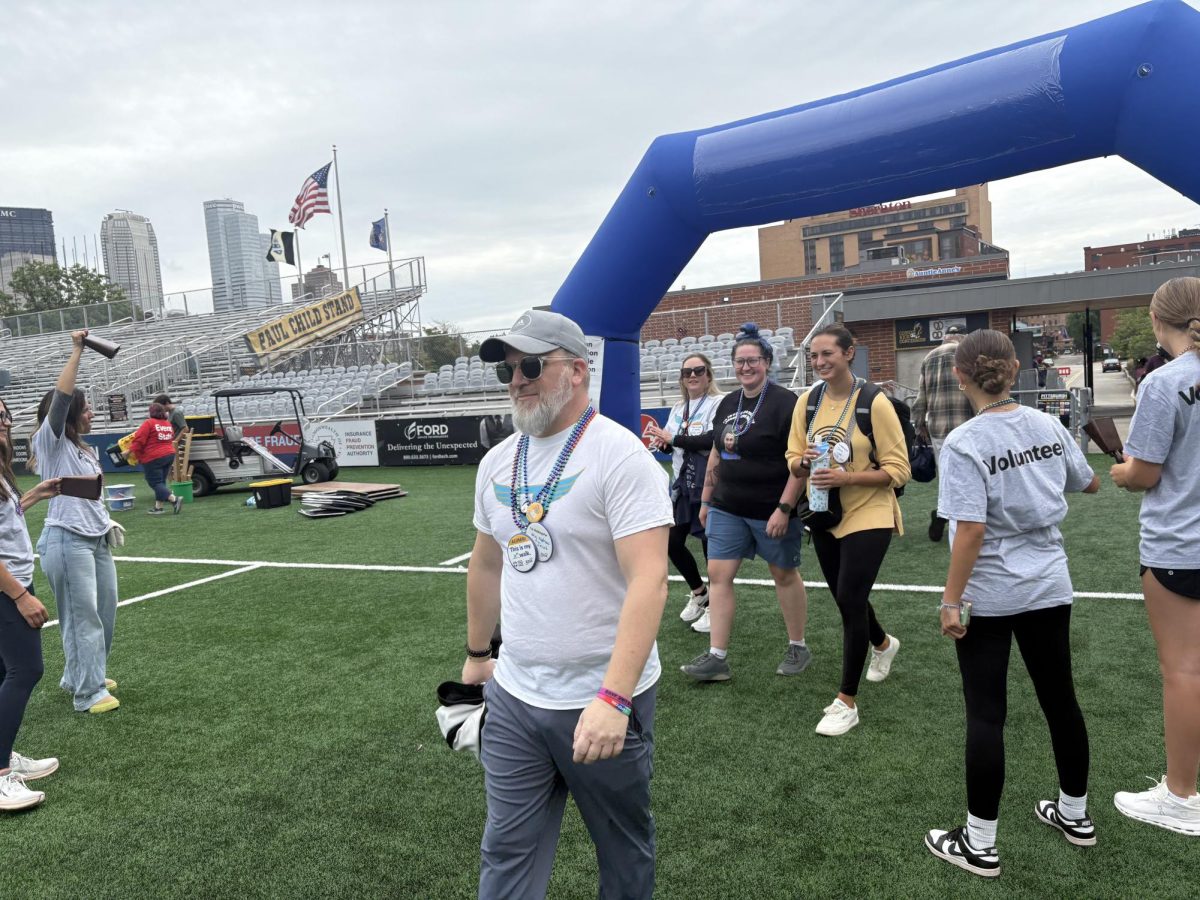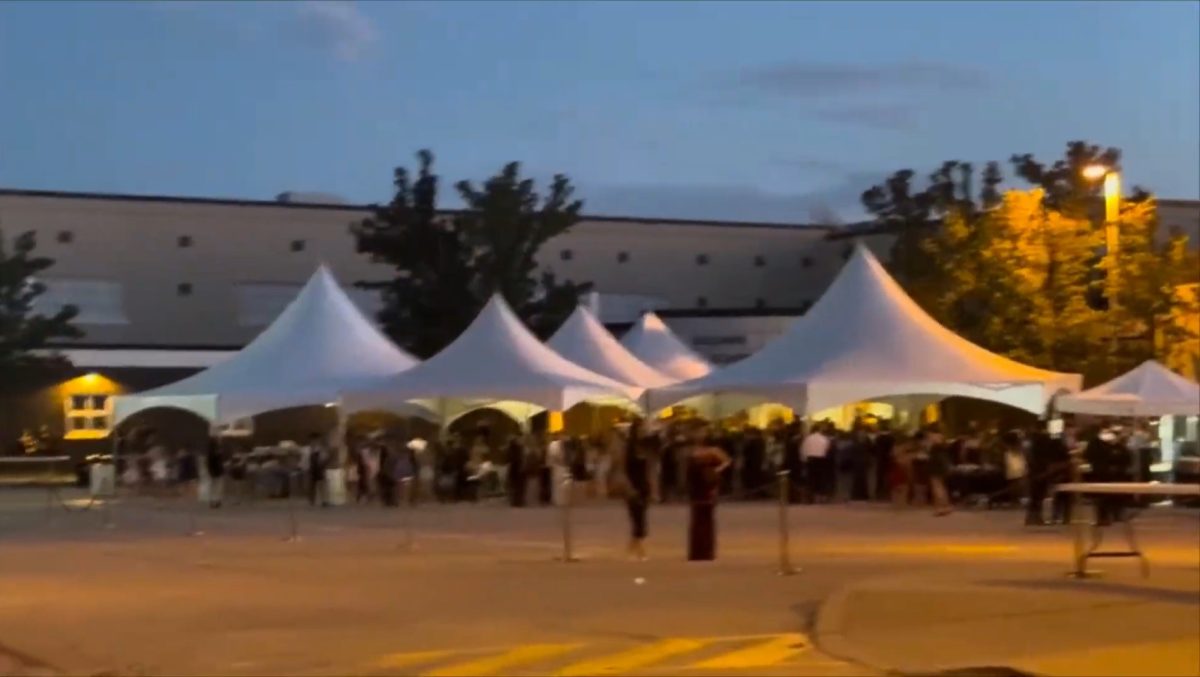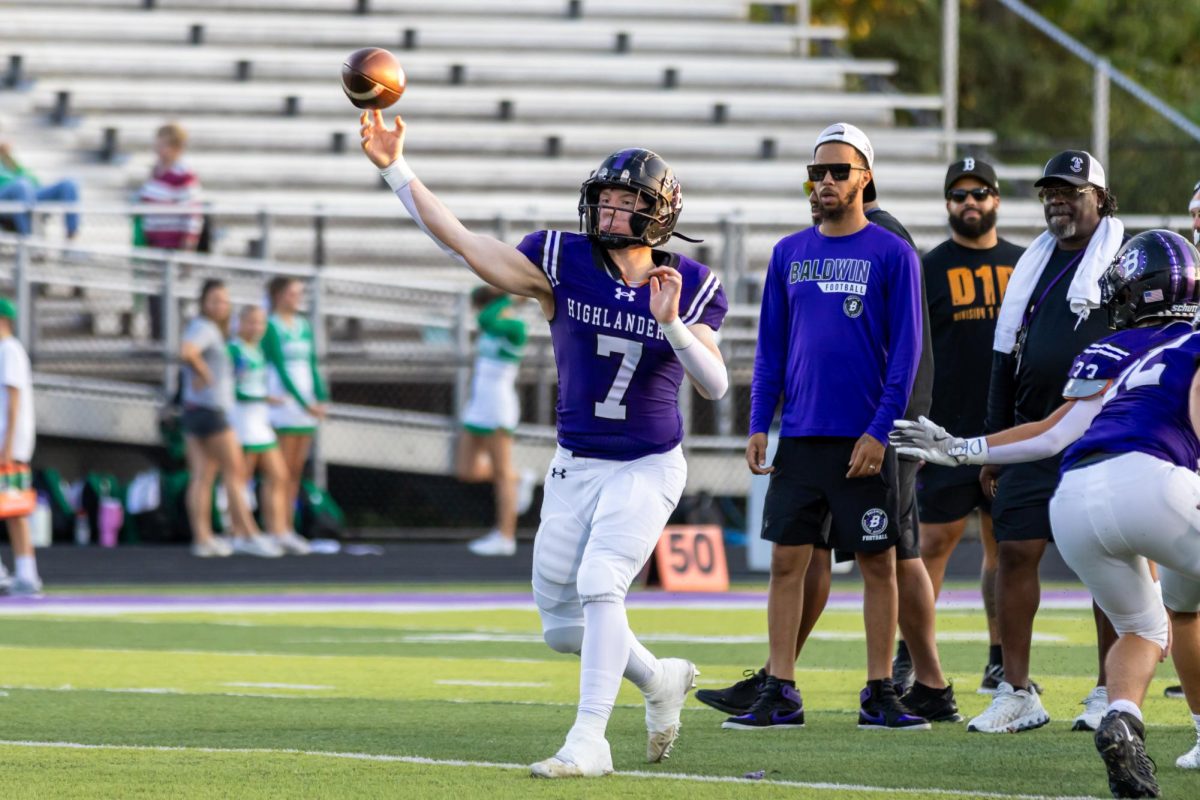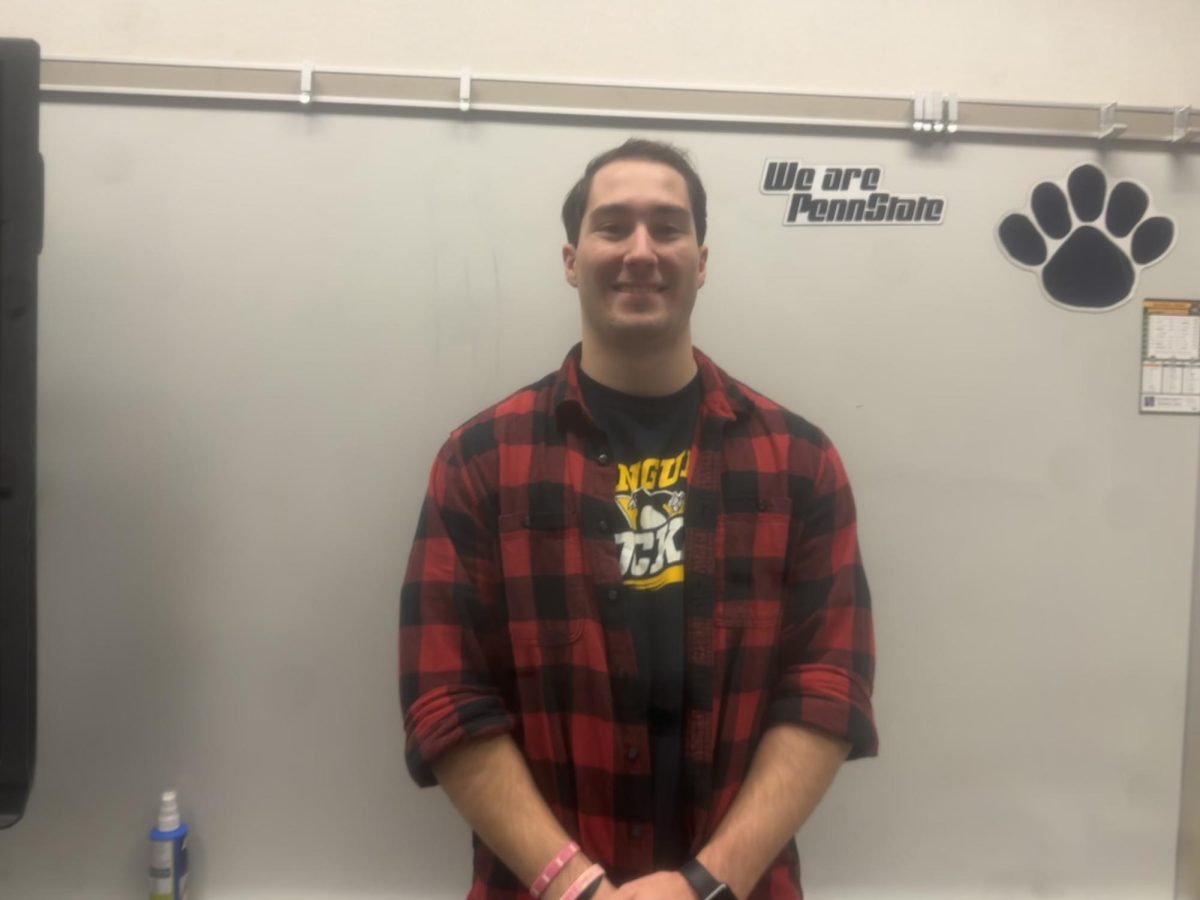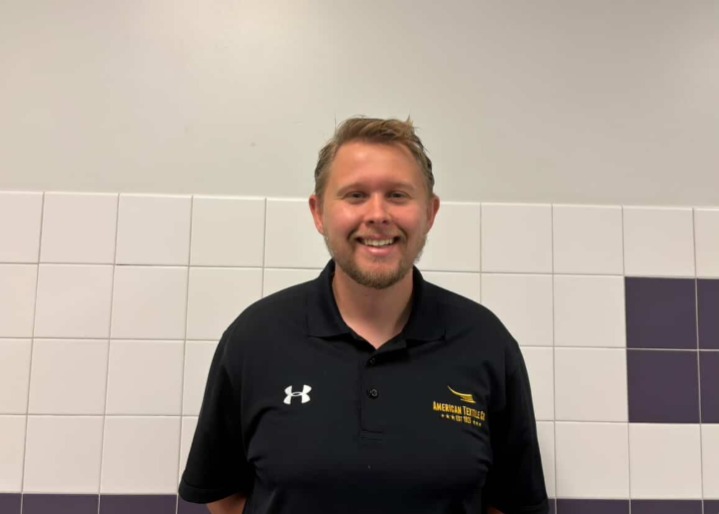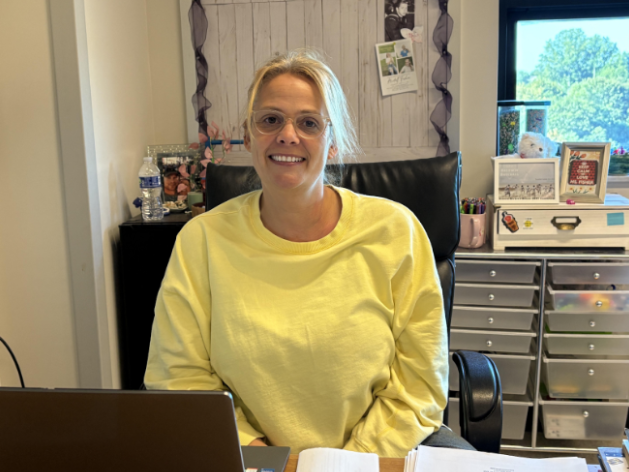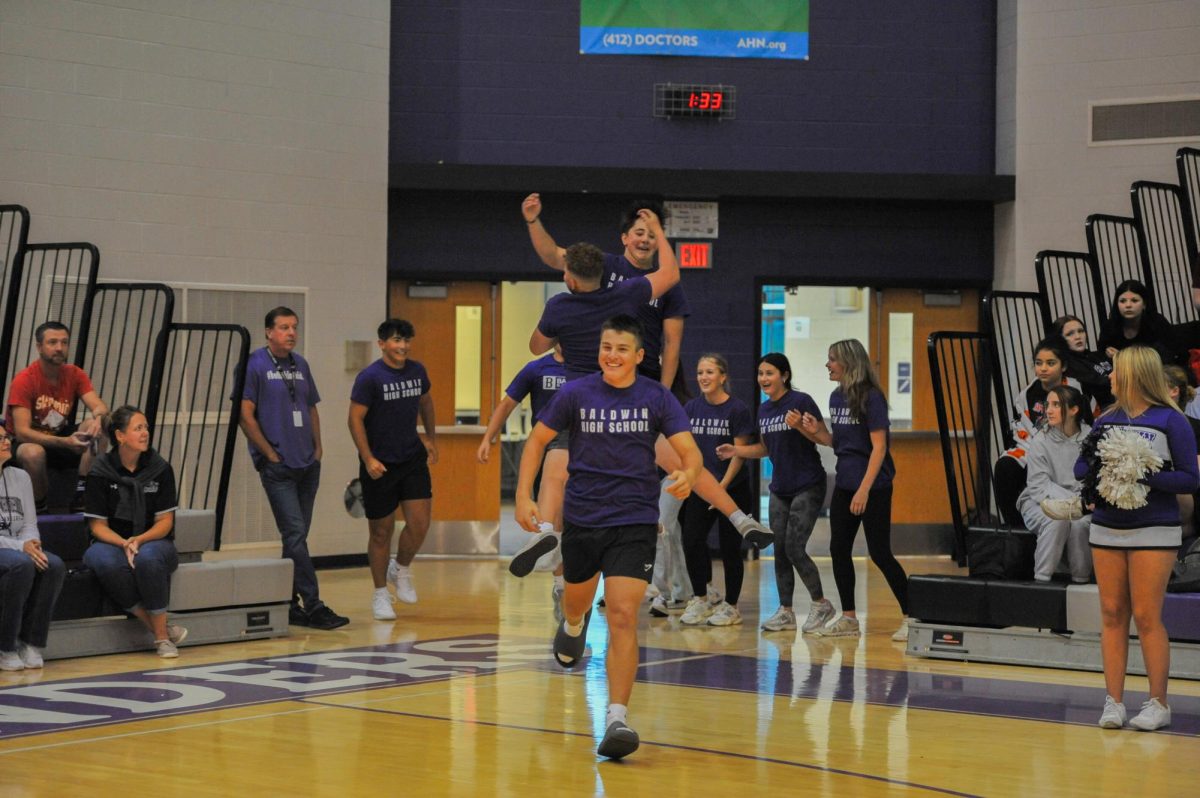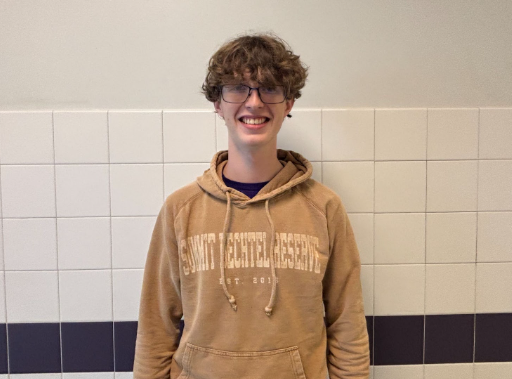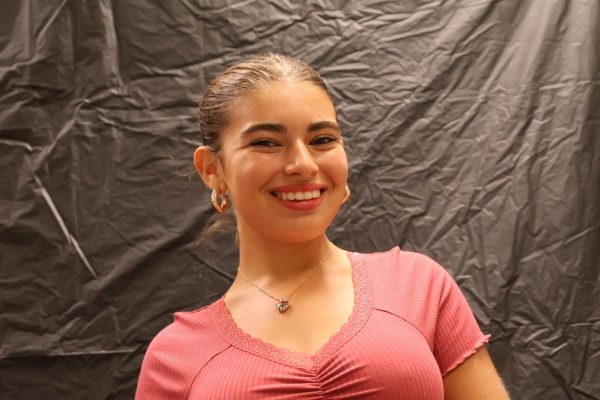As I put a string of gold beads around my neck, representing the loss of a parent, I prepare myself for the day ahead.
This past weekend, I attended Pittsburgh’s Out of the Darkness Walk hosted by the American Foundation for Suicide Prevention.
I volunteered at the honor beads tent. The colors of the beads each represented a different kind of loss – white for a child, red for a spouse, orange for a sibling, gold for a parent, green for personal struggle, teal for supporting someone, and purple for a relative or friend.
Every time someone asked for a gold necklace, no matter their age, we held eye contact and we had a moment of recognition. It was like saying, “I see you and understand your pain. I’m feeling it too.”
At the walk, I never saw a person take a beaded necklace representing immediate loss without seeing someone right behind them offering support. That was the most beautiful part.
All of the volunteers whom I spoke with had a story of their own. Many of them, like me, lost an immediate family member to suicide and were trying to honor their loved one by helping others.
“Volunteers are people in need, just like the people walking,” Robyn Travers, board chair for the Western PA chapter of the foundation, said.
A fellow volunteer at the honors beads tent, Lynn Squilla, said she encountered a woman who needed to be comforted in her grief.
“Today, this girl walked up, and she was just flooded with tears,” Squilla said. “She had lost her father, so I just gave her a whole bunch of gold beads, and I was able to hug her.”
People attend this event to meet others who have lost someone or are struggling themselves.
“Just that moment of contact is really important to know that you’re not totally alone,” Squilla said.
This was Squilla’s 10th year attending Pittsburgh’s Out of the Darkness Walk. “I first came with a friend of mine whose son took his life,” Squilla said. “So I was originally on a group called ‘Playing Shorthanded’ because he loved hockey, and playing short-handed means you’re down a player.”
This year, there were 237 teams all supporting and donating to the cause. Besides being a part of many teams throughout the years, Squilla now volunteers to remember those she lost.
“I had a lot of friends who struggled with suicidal thoughts, and I’ve lost others to suicide,” Squilla said.
When Squilla was younger, she said, no one talked about suicide. It was something said in hushed tones and swept under the carpet
“The fact that there is this kind of organization for support just uplifts your spirit. I keep coming because it takes everybody,” Squilla said.
Not only does this event need dozens of volunteers, but it also requires some very dedicated people who work the entire year to get the event up and running. Travers speaks at the event and gets to see the crowd that comes for the walk.
“When you stand up on that stage and can see 2,500 people all being together and finding hope in each other, that’s just incredible,” Travers said.
Another person who helps make this event happen is Alexander Gray, who works as a commissioner for Pittsburgh’s LGBTQIA committee and is the Advocacy Chair for the Western PA chapter.
“Just as someone who struggles with their mental health and well-being, and as a member of the LGBTQIA community, suicide is all too common,” Gray said.
Statistically, according to The Trevor Project, around 1.8 million young LGBTQIA individuals seriously consider suicide every year.
“Pittsburgh is a little bit more conservative than other cities, so there is more discrimination, and that does impact the mental health of people from my community,” Gray said.
Travers and Gray agreed that when they wear their suicide prevention shirts, someone almost always comes up and explains their own experience with suicide.
“Just today, I went to buy beads at the dollar store,” Travers said. “When I was there, the woman behind the counter was like, ‘What are all of these beads for?’ and I said, ‘It’s for the suicide prevention walk.’ And she said, ‘Oh yeah, I lost my brother,’ ” Travers said.
What I saw on Saturday made it clear to me: Suicide does not affect any one group of people. It’s a human issue. Grief and depression do not discriminate.
“It’s why it’s called Out of the Darkness – it should not be in the dark. Everyone should be able to talk about it,” Squilla said.
Pittsburgh has always made a major financial impact on suicide awareness. This year, the walk raised just over $200,000.
“The walk should be universal – every country, every city,” Squilla said.


